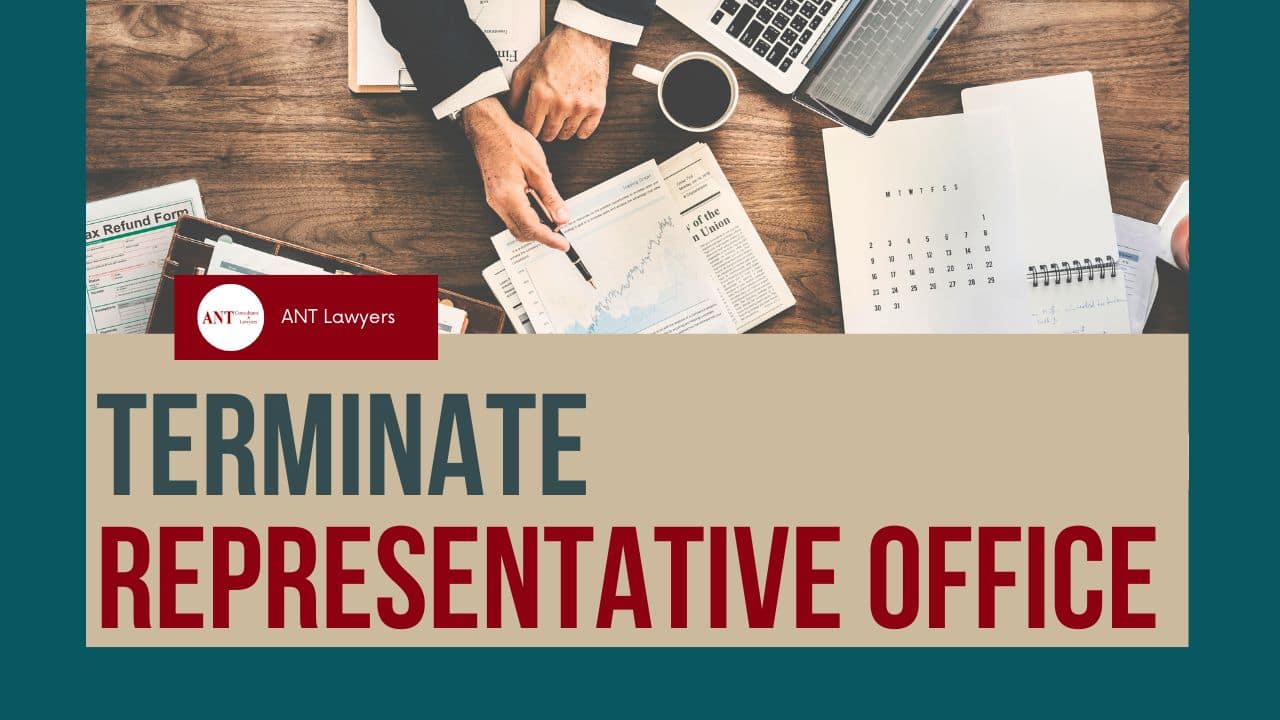For foreign businesses eyeing the fast-growing Vietnamese market, setting up a Vietnam Representative Office (RO) can be a strategic, low-commitment entry point.
A Representative Office in Vietnam allows foreign traders to explore business opportunities, test the market, and build brand presence without the financial and legal commitments of establishing a full-scale company.
In the following, we delve into 13 critical aspects of setting up and operating a Vietnam Representative Office to ensure you have a clear roadmap for a successful market entry.

What is a Representative Office in Vietnam?
A Vietnam Representative Office is an office established by a foreign company to facilitate market exploration, promote products, and engage in research without direct profit-generating activities. Unlike a local company, the office cannot directly engage in sales or service provision. Its primary roles are market research, relationship-building, and brand promotion, ideal for foreign traders interested in trying the market without committing to a full-scale investment.
What is the Purpose of Representative Office in Vietnam?
The purpose of a Representative Office in Vietnam is to enable foreign businesses to:
-Explore Market Opportunities: Conduct market research and assess the demand for products or services.
-Build Brand Recognition: Promote products and services to potential Vietnamese clients and partners.
-Build Business Connections: Network with Vietnamese businesses, industry partners, and regulatory bodies.
-Prepare for Full Investment: Use the office as a foundation to transition to a full-scale investment if the market response is positive.
What are the Differences Between a Vietnam Representative Office and a Company?
A Vietnam Representative Office differs from a Vietnamese company in structure, rights, and limitations. Key distinctions include:
-Business Activities: A representative office cannot engage in profit-generating activities, such as sales, production, or service provision, whereas a company can.
–Tax Obligations: Companies are subject to corporate income tax, VAT, and other local taxes, while representative offices have limited tax obligations.
-Legal Status: A representative office acts as an extension of the foreign parent company, whereas a Vietnamese company is an independent legal entity.
-Financial Commitments: Setting up a representative office requires less capital and operational overhead than establishing a company.
Can a Foreigner Be Appointed as Chief of a Representative Office in Vietnam?
A foreigner can serve as the chief of a Vietnam Representative Office. This position allows the foreign parent company to have direct control over the office’s operations. The chief of Vietnam RO can apply for work permit in Vietnam, and then apply for temporary residence card in Vietnam to stay for a long term.
What is Process of Setting Up a Vietnam Representative Office?
The setup process for a Representative Office in Vietnam involves several essential steps:
-Applying for a License: In most cases, approval from the Department of Industry and Trade in the desired province is required, typically taking around 15 working days.
-Documents Required: Key documents include the foreign company’s business registration certificate, company charter, financial statements, and a letter of appointment for the chief representative, all of which must be translated into Vietnamese and notarized.
-Office Registration: The office must secure a physical location, often a commercial space.
-Seal and Tax Code Registration: Essential for official documentation and legal compliance, the office must register for a seal and tax code.
What is the Term Duration for an Office License in Vietnam?
The license for a Representative Office is generally valid for up to five years, with the possibility of renewal. To renew, foreign companies should apply at least 30 days before the current license expires. This term duration provides flexibility to evaluate market conditions over a significant period before deciding on further investment.
Vietnam Representative Office Regulations
Vietnam Representative Office regulations are governed by the Ministry of Industry and Trade and the Commercial Law of Vietnam. Some critical regulations include:
-Annual Reporting: The office must submit an annual report detailing its non-revenue activities.
-Limited Scope: The office cannot conduct direct trade, process transactions, or issue invoices.
-Chief Representative Requirements: The chief representative must be officially appointed and meet residency requirements, if applicable.
Can a Vietnam Representative Office Open a Bank Account?
A Vietnam Representative Office can open a local bank account in Vietnam. This account is used solely for handling operational funds, such as employee salaries and office expenses. Since the office cannot engage in revenue-generating activities, the account is restricted from processing sales transactions.
Tax Obligations for a Vietnam Representative Office
A Vietnam Representative Office benefits from lighter tax obligations. As it is not permitted to conduct sales, it is generally exempt from corporate income tax and VAT. However, it must file an annual personal income tax (PIT) declaration for its employees and submit an annual report on its operational expenses.
Legal Status and Tax Declaration of a Vietnam Representative Office
A Vietnam Representative Office lacks independent legal status and operates as an extension of the foreign parent company. Its tax obligations are limited to non-revenue declarations and personal income tax for employees. Compliance with these minimal tax requirements is essential for maintaining a positive relationship with local authorities.
Pros and Cons of Setting Up a Vietnam Representative Office
- Pros of Setting Up a Vietnam Representative Office
-Lower Cost: Minimal financial commitment compared to establishing a full company.
-Brand Presence: Opportunity to promote the brand locally.
-Market Knowledge: Direct access to market data and consumer insights.
- Cons of Setting Up a Vietnam Representative Office
-Restricted Activities: Cannot conduct profit-generating activities.
-Compliance Obligations: Annual reporting and tax filings are required.
-Temporary Solution: It is not suitable for long-term revenue generation.
Registering a Representative Office in Vietnam: Key Considerations
For a successful Representative Office registration, foreign companies should:
-Choose a Strategic Location: Major cities like Ho Chi Minh City and Hanoi, Da Nang offer ideal entry points.
-Ensure Document Accuracy: Ensure timely submission of all required documents in Vietnamese and notarized.
-Engage Local Legal Experts: Vietnam’s regulatory environment can be complex, so local legal guidance is recommended for compliance.
Procedures for Closing a Vietnam Representative Office
If a foreign business decides to exit Vietnam, it must officially close the Vietnam Representative Office. The closure process includes:
-Notifying Authorities: Informing the Department of Industry and Trade of the decision.
-Settling Financial Obligations: Clearing any outstanding taxes or employee benefits.
-Returning Licenses and Seals: Surrendering the representative office’s operating license and official seal.
-Public Announcement: Announcing the closure in Vietnamese media to officially conclude operations.
Conclusion
Setting up a Vietnam Representative Office provides foreign traders a low-commitment, cost-effective way to explore Vietnam’s promising market. The office allows companies to understand demand, network with local partners, and promote their brand. With lower financial obligations and a limited tax burden, an office serves as an ideal stepping stone for businesses to test the Vietnamese market without a full investment. However, foreign companies must be mindful of compliance obligations, limited operational capabilities, and reporting requirements to maintain a favorable standing with Vietnamese authorities.
About ANT Lawyers, a Law Firm in Vietnam
We help clients overcome cultural barriers and achieve their strategic and financial outcomes, while ensuring the best interest rate protection, risk mitigation and regulatory compliance. ANT lawyers has lawyers in Ho Chi Minh city, Hanoi, and Danang, and will help customers in doing business in Vietnam.

10 Powerful Tips to Operate a Representative Office in Vietnam

Note on Setting up a Representative Office in Vietnam

Conditions for Establishing Representative Office in Vietnam

12 Strategic Reasons to Set Up a Representative Office in Vietnam Now

7 Essential Steps. How to Easily Terminate Representative Office in Vietnam?
How ANT Lawyers Could Help Your Business?
You could learn more about ANT Lawyers Foreign Investment Practice or contact Our law firm in Vietnam for advice via email ant@antlawyers.vn or call our office at +84 28 730 86 529
